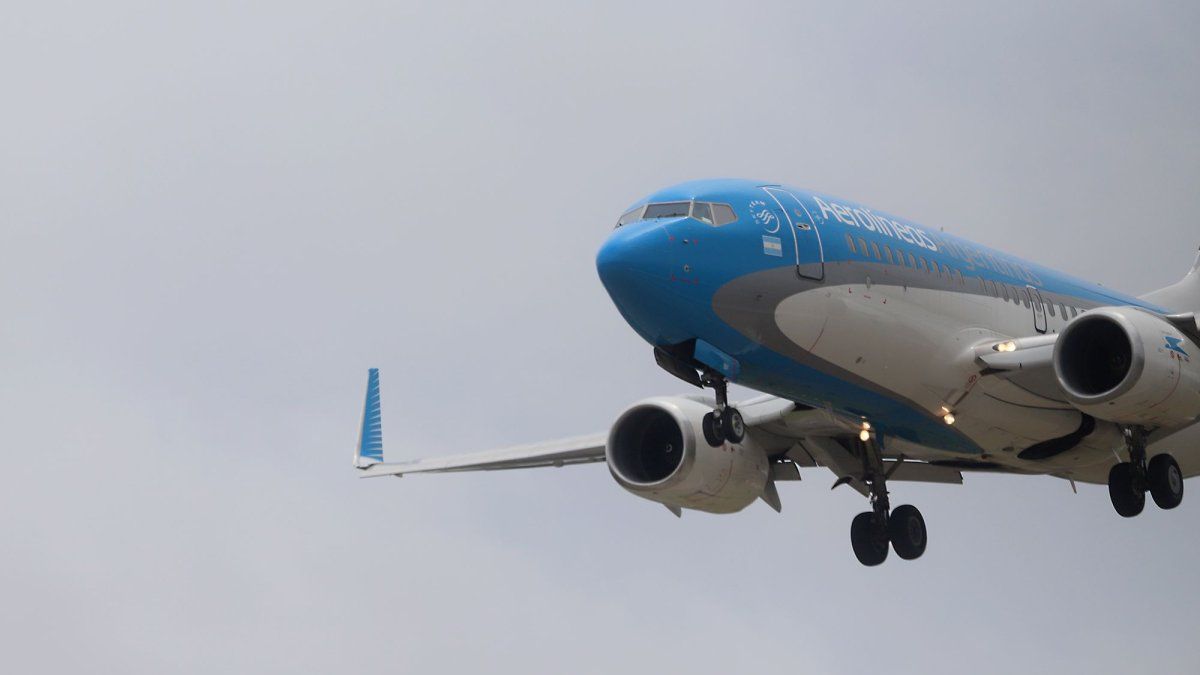In the midst of the negotiations between Aerolíneas Argentinas authorities and the aeronautical unions about the fate of the company, there are specialists who assure that its balance sheet does not encourage privatization for investors.. “It is the worst option because it harms the company.”“, they indicated to this medium.
¿That do with Aerolíneas Argentinas? This is the question on the table since President Javier Milei announced his intentions to privatize the company.
As in the recent debate of the Bases Law, the Executive Branch did not achieve the necessary majorities to include Airlines among the companies “subject to privatization”, declared it in the same way under the terms of article 9 of Law 236966.
Aerolíneas Argentinas numbers do not speak of privatization
However, the flag carrier’s numbers do not indicate that privatization is a possibility in the short term. According to a report by the Fundar Foundation, called “What to do with Aerolíneas Argentinas?” The average operating result on sales in the last ten years was -22%, while a negative equity of US$170 million is maintained.
Even so, in the public debate it is stated that the company did not need contributions from the State during 2023 since it achieved operational balance.
In reality, the company did not achieve operating balance, but it did achieve a flow of balanced net cash “thanks to the financial results generated by a growing exchange gap” and the BCRA sector regulations.
At the same time, the aeronautical industry is a sector with “small margins” of profits and, in political terms, the Government did not obtain sufficient support to approve privatization in Congress. “Privatizing the company is unfeasible”, highlights Fundar.
IMG_3003.jpeg
On the other hand, the foundation chaired by Sebastian Ceria warns that only the airline announcement As a company subject to privatization, it could generate drops in sales, due to the uncertainty that such a decision would generate for passengers.
What will become of the company when it is time to fly on the indicated date? is the question that the staff imagines. “This same dynamic could decrease the value of Aerolíneas Argentinas, lowering the probability of privatizing the company.”, they highlight in the report.
To put in context, the national State owns the flag company that has a 64% domestic market share and flies to 39 national destinationsmost with two daily frequencies, and is the only company that operates in half of them.
“Getting rid of these assets would have high costs for the Stateboth for the obligations already contracted and for the investments made,” Fundar concludes regarding the idea of privatizing.
Aerolíneas Argentinas: the context of the announcement does not help
Therefore, if the objective is to privatize the company, ““To announce it under these conditions is to reduce the probability of that happening.”Gonzalo Guilardes, economist and associate researcher of the entity, explained to this medium.
In that sense, the specialist relativized the weight of the salary factor in the discussion due to the deficit that the company represents: “Salary remuneration They only represent 25% of total expenses. The problem is much more complex. A plan needs to be presented to see how the operational balance of the company is achieved,” he analyzed.
In any case, the report does not downplay the importance of the air navigation company as part of the State’s assets. On the contrary, it highlights that in the last years, the importance of public companies in the global economy increased.
Thus, while at the beginning of the century They represented 5% of total income of the two thousand largest companies in the world, this participation increased to 17% between 2016-2018. In 2018, the total assets of public companies reached the equivalent of 50% of global GDP.
The importance of the company in federal key
At the local level, Fundar lists reasons that justify the need for public policies in Argentina that encourage and promote aerocommercial development. Among the main ones are:
- It is the eighth country in territorial extension with large territories of low population density and with a third of its population concentrated in the AMBA.
- It is surrounded by oceans in a southern region of the planet far from the regions with the greatest intensity of global passenger and trade flow.
- has a federal political organizationl.
“We want public interest and pragmatism to prevail in the situation. In theory it is not necessary to have a flag line, but the line is there. Any solution has to start from reality,” explained the member of Fundar and concluded: “Privatization is the worst option, because it harms the company.”.
What to do with Aerolíneas Argentinas?
Finally, the entity explores an answer regarding the fate of the airline, without considering privatization, bankruptcy or continuity under the current dynamics as possible options.
For this reason, Fundar considers that “capital contributions intended to finance the operating deficit must end and implement new forms of public financing of the company’s non-commercial objectives.” But first, it is necessary to clearly define which are the commercial objectives of the company and which are the non-commercial ones.” “The objectives must be made explicit and translated into quantifiable goals accessible to citizens for control.” he indicated.
Finally, and in relation to the entry of private capital into the company, “this is a debate that must be raised once operational balance has been achieved,” says Guilardes.
Source: Ambito
David William is a talented author who has made a name for himself in the world of writing. He is a professional author who writes on a wide range of topics, from general interest to opinion news. David is currently working as a writer at 24 hours worlds where he brings his unique perspective and in-depth research to his articles, making them both informative and engaging.



